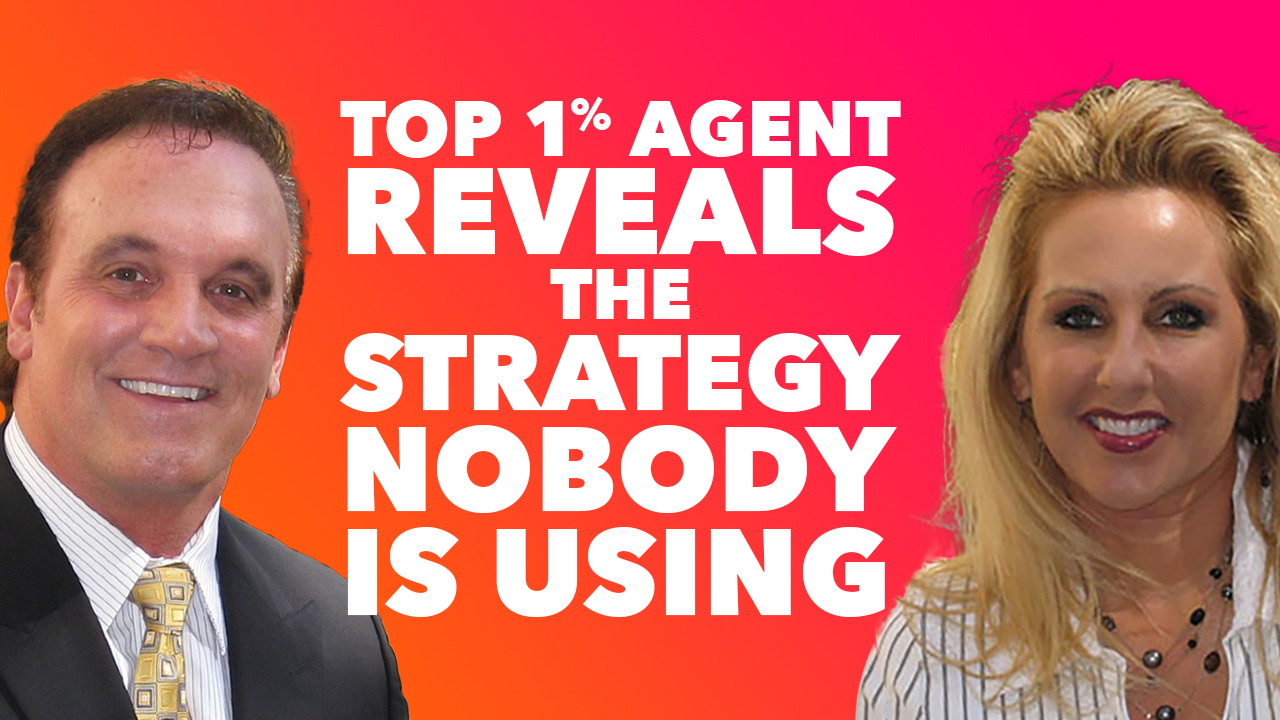There’s no denying that the real estate industry has been poised for some radical changes that have now been made manifest. The rising popularity of ibuyers programs like Zillow Offers is one of those changes.
ibuyers aren’t new. They’ve been around since 1989, when HomeVestors of America was founded. (HomeVestors is the parent company of We Buy Ugly Houses.) What’s interesting about Zillow’s entry into the ibuyer arena is the frustration and anger it seems to have provoked among agents. Why the uproar?
The answer is simple: agents feel like they’ve been lied to. Zillow went on record saying it did not intend to become a brokerage, but essentially Zillow Offers operates as one. This “thumbing of the nose” was one more reason why agents hate Zillow. (For various reasons, agents have been opposed to Zillow nearly since its beginning.)

ibuyers like Zillow Offers are transforming the real estate industry, causing some agents to worry about their livelihoods.
As Zillow Offers continues its rapid expansion, agents are beginning to take a broader view of ibuyers and are worried about their livelihoods. But as is the case with every change, whether it’s welcome or not, those who adapt are the most likely to survive.
As far as I can tell, if you want to remain an independent agent, then there are only two ways you can adapt to the growing presence of ibuyer companies.
Either you decide to compete head-to-head with the top ibuyer companies—companies like Opendoor, Redfin, Zillow Offers, and others for prospective sellers.
Or you don’t compete and let ibuyers do their thing while you do yours.
A strategy for competing against ibuyers
With an excess of contradictory opinions available about ibuyers, and about each ibuyer company, sellers are in desperate need of help to make sense of it all. They’ll search for someone they can trust to explain away the confusion. Consequently, one of the most potent tools you have when competing against ibuyer companies is education.

Objectively helping sellers understand how ibuyers work will alleviate their confusion and concern and earn you some valuable trust in the process.
You probably already know quite a bit about ibuyers, but sellers who don’t may be eager to jump at an all-cash offer. Without knowing the details or differences among ibuyer programs, sellers could be in for surprises they didn’t expect.
There are also advantages and disadvantages of working with ibuyers. Because these are what sellers will consider when deciding whether to hire you as their agent or work with an ibuyer, you will need to understand their implications and be confident when explaining them.
Getting the word out
When educating sellers about ibuyer programs, your job is to present the information in as comprehensive, objective, and clear a manner as possible. Sellers will appreciate the information and the honesty with which you present it to them, which is a wonderful first step in building a trusting relationship.

Educating sellers and being upfront about the pros and cons of working with ibuyers can earn agents the trust that might turn the tide in their favor.
And like what happens with many FSBOs, once a seller understands the ins and outs, and what can go wrong or not according to plan, they may opt to work with you as their agent rather than an ibuyer.
There are several ways you can choose to get the word out to people in your sphere and beyond.
- Write a blog. You can write one or a series of blogs addressing different facets of ibuyers. You can write an original piece on an ibuyer topic, create a list of FAQs about ibuyers, or find a blog already written and put a different spin on it or write an opposing opinion. If you’d like some help writing a blog, you can listen to this episode of Stay Paid for advice, or read this blog for some simple tips about writing like a marketer.
- Host a webinar. You can use a site like Canva to create presentation slides for the webinar. Participants will need to register with an email address that you can use to send a recording of the webinar along with the slides and to follow up. Remember to allow for questions at the end.
- Create an infographic. In addition to a slide presentation, you can also use Canva to create an engaging infographic that will visually communicate your key ideas. You can create infographics about ibuyer companies and programs that compare and contrast, that highlight features, that illustrate the various fees, or that reveal the advantages and disadvantages. The only limits to what you can create are your own imagination and what your audience will find useful. Offer your infographic as a lead magnet on your website that they’ll get in exchange for their email address.

An infographic you build using Canva or another program can help you communicate ideas in simple and clear ways that garner you respect and trust.
Whatever option you choose, be sure to reuse the content you’ve created to fulfill the other two options!
Some battles don’t need to be fought
Deciding not to compete head-to-head with ibuyers is a legitimate strategy, and you may find it to be your better option.
There will be those of you reading this blog who may think my head is in the sand, and maybe it is, but bear with me for just a second.
Take a step back for a moment and consider the ibuyer’s ideal client:
- They own a home worth about $240,000.
- Their house is in good repair, perhaps with the need for few cosmetic touches to spruce it up.
- They’re willing to accept less money than a traditional sale would fetch.
- They want to be out of their homes fast.
Does this sound like your ideal client? For many agents, the answer is no.

Your niche is likely to be quite different from the niche ibuyers occupy. You can decide to do what you do best and stick to your niche.
You selected your niche because it includes the type of homes you want to buy and/or sell and the type of people you want to work with. If it’s working for you, why pursue sellers like those described above?
The value of relationships
Even if you don’t court the sellers more suited to ibuyers, it’s possible (and in some markets, likely) that you’ll be working with a client who tells you they’ve received an offer from an ibuyer. In that situation, education is still your best defense. You need to know how to respond not only with information that might make an ibuyer a less attractive option but also with what makes you the better choice.
Personal attention
Don’t let your clients underestimate the value of doing business with a person they know, who is dedicated to getting them what they want, and who will serve their needs.

Part of the value agents bring to the table is a sincere desire to listen to their clients and to help solve their problems and satisfy their needs.
Unlike an ibuyer whose primary motivation is to buy and sell a house as quickly as possible, an agent will work with their clients until those clients are satisfied.
An agent will help a seller evaluate offers and negotiate a deal to ensure they get the best price for their home. They’ll answer clients’ questions, keep them apprised of the next steps, advise them about what needs to be done, respond to emergencies, and generally will be available when and where clients need them.
Business relationships
For me, one of the most valuable aspects of working with an agent when selling my property was having access to my agent’s network of business relationships.
I’d been renting out a house when I decided to sell. Once the tenants left, there was a lot of work to be done before I could put it on the market.

Agents typically have a vast and valuable network of professionals they can call upon to help their clients before and, if needed, after the sale.
With only a few phone calls, my agent was able to get me a team of painters, two plumbers, a general contractor, and an electrician. And because of her relationship with these businesses, all were able to start work within two days of her call, were reliable, and did excellent work. I couldn’t have been happier.
Ongoing benefits
Once my property was sold, my agent took steps to remain in touch with me. I hear from her fairly regularly. Once, pre-pandemic, she popped by with a small Easter basket (I loved that!)
Aside from the peanut butter eggs, which she knew I liked, the nice thing about her ongoing contact is that she’s helped me in ways completely unrelated to real estate. She put me in touch with a lawyer when I needed one, recommended a vet, and because she knows I like to garden, she told me about a discount nursery that is now my go-to place for plants and flowers.

As the go-to expert local expert, your network of professional connections can be a reason to stay in touch. Your clients will appreciate the offer of help.
An ibuyer wouldn’t do any of these things for me.
Let’s put aside for a minute that I work for ReminderMedia. I’m like anyone else—I like to be treated well; I like personal attention; I appreciate getting help when I need it; I get excited by an unexpected gift now and then.
My agent practices what ReminderMedia preaches—she reaches out and offers value and quality—and I’ve got to say, I did recommend her to a friend, and I will be calling her when it comes time to buy another house. And that’s not because I work where I do . . . it’s because she’s helped me out, and I’d like to return the favor.

Stay top-of-mind with your clients, and you can continue to serve them with recommendations for services. Such help will be reciprocated with referrals.
Use the personal relationships you have developed with clients to your advantage. Stay in touch and continue to offer help. Gary Keller in The Millionaire Real Estate Agent suggests 33 touchpoints a year with each of your clients. I don’t hear from my agent that often, but it’s often enough for me to think about her as my agent.
If you’d like some help keeping in touch with your clients, visit our website. We’ve got quality products that provide value, and what’s really helpful is that they’re automated—you don’t have to worry about forgetting to reach out.

If you’d like a free copy of our flagship product, American Lifestyle magazine, you can click here.
There will always be new challenges you’ll need to adapt to—that’s not just the nature of business, it’s the nature of the world. However, one thing that won’t change is the value of personal relationships. Whatever you choose to do, it’s important that you stay in touch with your clients because, in the long run, relationships will be what makes doing business with you the better choice.
Interested in knowing more about mega-brokers and iBuyers? Check out: Zillow’s Embarrassing Glitch Should be a Wake-Up Call for Agents.





















